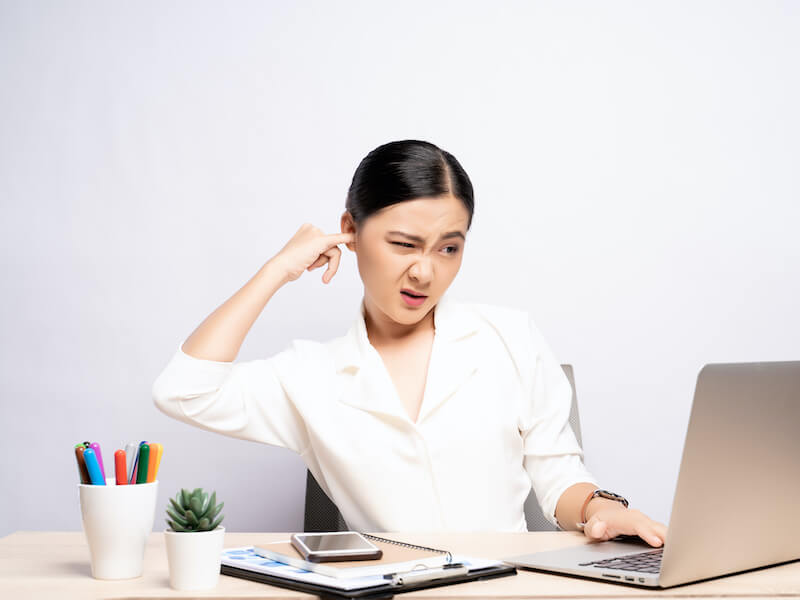
We’ve all experienced that itch that seemed impossible to scratch.
You might consider this in a couple of different ways: First, you consider something you always wanted to do in life but so far you haven’t got around to (skydiving, for instance). Or, if you’re a bit less of a romantic, you think about that spot on your back that you just can’t quite scratch.
That’s so aggravating! Desperately attempting to scratch that itchy spot on your back. That’s why we created back-scratchers.
Unfortunately, there isn’t a device that can get rid of itching inside of your ears. That itchy feeling is coming from inside your ear canal, somewhere that you physically can’t reach (no matter how hard you try). It’s even worse than that spot on your back, and it isn’t surprising that itchy ears are most likely driving you nuts.
Your everyday life can be impacted by itchy ears
It may sound like a small issue, superficially. Itchy ears? It could be much worse, right? At least your ears aren’t in pain or burning or throbbing.
Here’s something to think about: There’s no relief for an itchy ear. No fuss, if it only occurs from time to time. But if your ears are itchy all the time? It might end up having a real affect on your quality of life.
Perhaps you stay home and quit interacting with friends. Maybe you begin listening to louder and louder music trying to drown out that itchy feeling.
It’s not fun at all. But there are solutions and treatments. Finding the best way to address itchy ears means understanding what causes them to begin with.
So what are some of the causes of itchy ears?
So why are your ears itchy? And what’s the treatment? The treatment for itchy ears is going to differ depending on the underlying cause. Your ears might be being impacted by many root causes, as with most medical conditions. Here are a few of the most common:
- Ear infections: That’s correct, the source of your itchy ears can be a regular ear infection. Ear infections can occur at any age but happen more frequently when you’re younger. And when they do, fluid can build up in your ears. In addition, the tissues in your ears can begin to swell (thank you, inflammation). Extremely itchy ears can be the outcome of this trapped fluid and irritated tissue. Addressing the infection with your doctor’s help is the solution. Your ears will usually stop itching when the infection clears up.
- You have an earwax blockage: If your ears are creating a substantial amount of wax, that’s not unusual. You may be surprised to find out that wax is actually cleaning your ears. But this blockage can develop for numerous reasons. One reason is due to the use of cotton swabs to “clean” your ears, so if you’re doing that, you should stop immediately. We can, in any case, help you clear up any earwax difficulties. So making an appointment can help bring you some relief.
- Improper hearing aid fitting: Your hearing aids should fit into your ears snugly. This will yield the best results and the best sound. But this snug fit can turn into irritation and itchiness when your hearing aids don’t fit properly. Your hearing can be negatively affected if this causes you to stop wearing your hearing aids as frequently. Schedule an appointment with us for a proper fitting is the solution. We may even be able to mold your hearing aid so it better fits your ear.
- Skin disorders: Occasionally, a skin disorder can cause a response in places you can’t itch. You can even find yourself with something called ear dandruff. Your doctor will be able to help you determine what your options are. putting moisturizer in your ear isn’t a practical or safe option, after all. Again, your provider will be the best person to help you treat skin conditions that cause itchy ears!
- Allergies: Allergies are challenging, and it’s not unusual for them to trigger itching. In some cases, an over-the-counter allergy medication, such as an antihistamine, can ease itching caused by allergies. It can be hard to pin down, sometimes, precisely what you’re allergic to. But itchy ears can result from a wide variety of allergens, including pollen. So your spring hay fever could very easily become itchy ears. If the itching persists, you should consult an allergist about finding a solution (and relief).
Finding relief for your itchy ears
Itchy ears can take the joy out of pretty much anything. Finding the right treatment, and getting sustained relief can be completely life changing. If you attempt to simply wait it out, you will most likely extend your suffering because it’s not likely that the itching will clear itself up.
If you find that your itchy ears are driving you nuts, make an appointment with us so you can stop focusing on the itch, and get back to the normal, everyday activities you enjoy.
